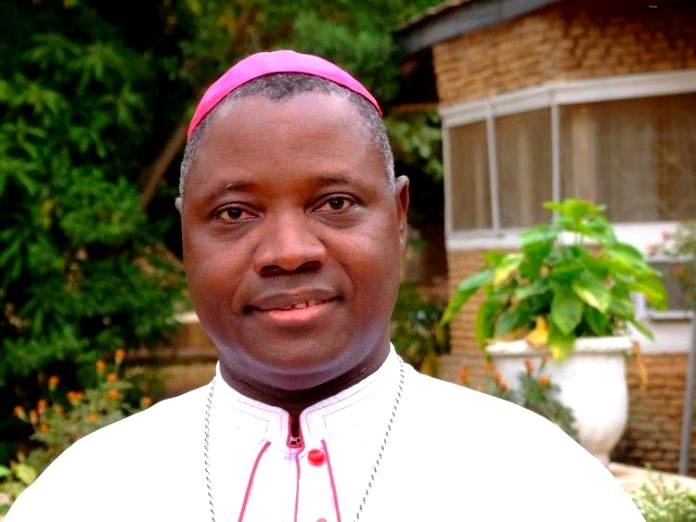
Email: ochima495@gmail.com
SMS: 08055001912
Former President Ibrahim Babangida, the beloved Maradona in our national politics, turned 80 on August 17. The current of history has moved him down stream as an authentic elder statesman. This piece serves two objectives: firstly as a brief tribute to a man who, unwillingly, has become a major issue in our national politics; and secondly, to briefly appraise his recent good leadership prescription for the country.
Babangida has been in the eyes of the public since he put an end to the murderous adventures of Lt Col Suka Dimka in February, 1976. He did not save the Murtala regime but he prevented the Young Revolutionaries from keeping us in doors from dawn to dusk in observance of their unusual curfew. He has been in the eyes of our national political storm since he shoved aside his commander-in-chief, Major-General Muhammadu Buhari on August 27, 1985, and proceeded to unfold his blueprint for a new Nigeria. He was full of surprises and delivered regular shocks to the system. He did titanic things.
The presidential election of June 12, 1993, defines him and his place in our national history both positively and negatively. The election remains so far the only national election universally accepted as fair, free and credible. Its annulment turned the world upside down and became Babangida’s cross, a blight that threatens to rubbish his place in our national history. In the cruel irony of human history, a single error of the head or the heart by a national leader could see the expertly arranged cookies come tumbling down rather unsightly.
Babangida has held the nation by the ears for good and ill for a long time. It is natural for him to excite love and hate with equal passion. What is unique about him is that he came into office as a national change agent in a genuine effort to see this nation rise to its true greatness as Africa’s economic and industrial power house undergirded by a strong political system. His structural adjustment programme was aimed at strengthening the economic base with the active participation of Nigerians in its growth.
He took steps to clean up our political system and free it from money and the control of the money bags. He decreed the two-party system in line with our historical inclination to gravitate towards it since independence. He thus sought to build a new political system and ethos with room for everyone, including those with a good heart and a good brain but with holes in their pockets.
He made avoidable mistakes, the Achilles heels of all great men. He did not always get things right but he did not fear to take decisions that accorded with his place in history. He gave a new meaning to innovations. I am sure that as he looks back to his time in office as he trudges towards the sunset of his life, he would nod at his vast and positive contributions to our national development; he would also see fate as an unreliable support system in human lives. His enduring mistake was the annulment of the June 12 presidential election. In a cruel twist of both irony and fate, that mistake became the pedestal on which many others rose to their height in our national politics. Happy birthday, Mr President.
As part of events marking his birthday, he granted an interview to Arise Television a couple of weeks ago as of this writing. In it, the former president touched on a very intriguing point: the elusive quest for the good leader that Nigeria and the Nigerians deserve. In his view, the “good Nigerian leader (would be) a person who travels across the country and has a friend in virtually everywhere he travels to and he knows at least one person that he can communicate with. That is a person who is very vast in economics and is also a good politician who should be able to talk to Nigerians…that links with the people and tries to talk with the people; not talking on top of the people…”
You can always say this for the Prince of the Niger. He is a man of ideas and loves to throw them around. If we were not obsessed with finding our next meal in a battered and shrinking national economy, his latest idea would generate impassioned national conversation about what we have always dreamed of but woke up each time to the nightmare of its elusiveness. Such a national conversation would help to gradually move us away from our sterile obsession with the political rights and interests of the various ethnic groups to the fundamental issues of how we are or should be governed in a system that does more than pay lip service to the tenets of democracy.
The general knows that the quest for the good Nigerian leader is a tall order but it is an ideal worth taxing our imagination. Part of the problem, if not the apparent frustration, is that leadership recruitment process is not subject to the basic mathematical calculations of one plus one, making two. A prescription for a good leader is necessarily subjective. It is an opinion rather than an empirical fact of human history. Babangida’s concept of the good leader might be quite different from that of say, yours sincerely. Each man knows what should be the attributes of a good leader but in the hollowness of our national approach to a serious matter, we are easily given to accept anyone who emerges on the scene as God-sent, even if he does not match the picture of a good leader in our heads and his claim of being God-sent would make the almighty wince.
Babangida’s prescription does not seem profound because the subject matter is more basic than intellectual. But in throwing up the suggestion, he bids us think of a good leader as basically a man of the people who leads the people, not as God’s regent on earth but as a friend and a neighbour. Admittedly, a friendly man does not necessarily make a good leader but there is something to be said for the man who knows the country and understands the people. Such a man is closer to being probably a good leader in a country such as ours in which the management of our diversities has laid many a leader up by the heels. It seems that Babangida offered this from his own experience in office. From the general cool reception to his coup, he soon wooed the nation by throwing his arms around the nation.
In the course of my research for my biography of the former president, Ibrahim Babangida: The Military, Politics and Power in Nigeria, some of the very senior military officers in his administration, some of whom were his co-conspirators, told me that the problem with the president was that he had too many friends. They told me that he sometimes reversed him or failed to take important and critical decisions and actions in deference to his friends.
I suppose, the point he is driving at is an open-minded leader rather an insular and a provincial one who makes no efforts to know his country men and women and because of his insular nature, tends to be disdainful of those he does not care to understand as Nigerians with equal eights with those of his ethnic group and religious persuasion. A leader marooned on his ethnic island is the opposite of a good leader, right? Positive.
His second prescription is a man who does not talk on top of the people. Democracy is a government of the people instituted by the people precisely because it is the only form of government that thrives on constant dialogue between the people and their leader. That concept of democracy now faces the clear danger of being eroded by incipient authoritarianism in many countries. The Trump years in the United States marked a turning point in God’s Own Country. The global threat to democracy that stems from this is that some third world leaders are inspired by what John W. Dean calls “authoritarian nightmare” and feel entitled to disconnect from the people, treating them as mere but inescapable irritants.
The obstacle in our country lies in the process of leadership recruitment. The party primaries were instituted by Babangida to make the people participate in the emergence of good leaders at all levels. It is now worse than a farce. The will of the party moguls remains sacrosanct. Their assumed right to foist two left-handed men on the people is harmful to our democratic health and an obstacle to the emergence of good leaders at all levels of government.Still, the quest for a good leader is not an idle pursuit. In seeking for such a leader we collectively pursue a dream of a better tomorrow in the hands of a man or woman who means something positive to everyone; who has the empathy to properly manage our myriads of diversities in tribes and tongue, religions as well as cultures and traditions. A good leader is a dream wrapped in the hope that the system would, through divine intervention perhaps, throw up a man who bestrides our national politics like a true giant and stands head and shoulders above the hordes of midgets blessed with midget thoughts calling the shots on the political stage.



